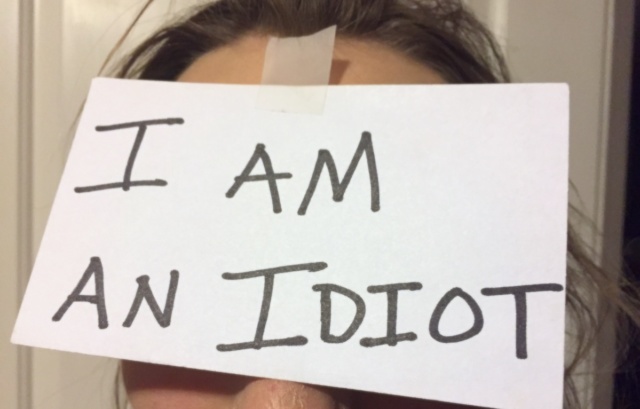

I‘ve made my feelings known about sportswriters before, and I’ve even masqueraded as a brainless one when I thought I had a hot take. But occasionally good journalism really is produced about Oklahoma athletics, and the state’s gargantuan football programs are often the focus.
To the shock of few, however, the enterprising journalists who suss out the hairier and scarier sides of big-time athletics are ridiculed by fans and trashed by Monday-morning editors. Their work is routinely dismissed as “biased” or “misleading.”
Twice arrested for alleged domestic violence
Such has been the case since Monday when Tulsa World reporter Casey Stavenhagen dropped a lengthy examination of star OU receiver and Heisman Trophy finalist Dede Westbrook.
The article brought public attention to Westbrook’s bumpy road to Norman, which originated in Cameron, Texas, with two junior college stops in Brenham, Texas. Along the way he was twice arrested for alleged domestic violence against the mother of his children.
Stavenhagen’s exposé is deep, and it paints a fair picture of a young man likely destined for the NFL. The author provides details about Westbrook’s arrests as well as perspective about his struggles that a lesser journalist might have left out. It raises important questions about what OU knew and what OU should have known, and it paints a compelling portrait in front of a violent sport’s backdrop that is increasingly colored by violent player actions away from the turf.
Reaction to the piece was mixed, with some criticizing a pernicious college football culture that often seems to value talent over social responsibility.
Others attacked the messenger, as epitomized by the top comment on the Tulsa World’s digital version of the story:
This seems to be a very long story on Westbrook who was never charged or convicted of a crime because the DA decided not to pursue it due to a lack of evidence. Reader’s note: Commander Cody of the TW used to work for Robert Allen’s OSU website. What’s wrong Commander Cody, Robert Allen not feed you enough donuts–or are you still upset about OSU’s getting whipped again in the Bedlam game.
A mere three years ago …
Donuts aside, reactions critical of Stavenhagen’s reporting are typical when journalists examine Oklahoma football, and it reminded me of Sports Illustrated’s 2013 investigative series into OSU’s football program.
That set of stories provided one of the most well-sourced looks into the darker side of collegiate football ever published. It examined player payments, recruiting violations, questionable academic practices, ineffective drug treatment programs and the general expendability of young men who don’t immediately succeed.
It even resulted in a litany of self-imposed punishments and an NCAA probation that expired this April.
OSU, however, hired a PR firm to handle the public fallout of Sports Illustrated’s series, and a few minor errors were used to dismiss the overarching validity of the issues raised. Other publications, such as Deadspin, attacked the author and panned the important reporting as a “dud” or worse.
OSU boosters and other onlookers jumped at the chance to criticize the reporter because, of course, trashing a journalist is the best way to ignore systemic problems in your favorite football program.
‘I am an idiot’
The Oklahoman’s Berry Tramel has detailed this phenomenon as it relates to the Tulsa World’s reporting on Dede Westbrook in a column posted Thursday:
The conspiracy crowd is claiming that World writer Cody Stavenhagen has an agenda because he is an OSU graduate.
Here’s a word of advice. Espousing this kind of nonsense is the new-age equivalent of wearing a dunce cap. You’ll have the same effect by putting a sign on your forehead that says, “I am an idiot.”
Tramel’s additional breakdown of the Westbrook story — and some football fans’ unfortunate responses to it — is worth a read in full, and it probably does a better job on that particular topic than I can.
But I also think it’s important to remember Sports Illustrated’s series from 2013. Why?
Because when a society refuses to accept the uncomfortable truths highlighted by good journalism, everyone loses.




















